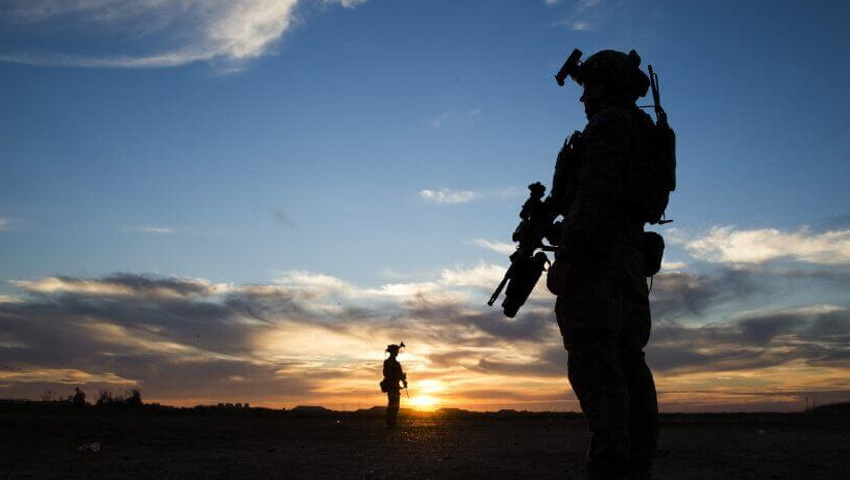Defence Connect Insight continues its analysis on the upcoming May deadline for coalition troop withdrawal from Afghanistan.
To continue reading the rest of this article, please log in.
Create free account to get unlimited news articles and more!
As has been previously discussed on Defence Connect Insight, Afghanistan sits precariously on the edge of civil war. Time is ticking for the Biden White House to make a firm decision on whether or not to honour the Trump administration’s US-Taliban Doha Agreement and exit the country by May. Not only has the Taliban done little to meet their end of the bargain, but recorded attacks on coalition soldiers has increased over the last 12 months. These are not the actions of an understanding, stable and fair partner in a mutually advantageous peace process.
In early March, US Secretary of State Antony Blinken offered stern advice to the President of Aghanistan Ashraf Ghani that the consequences of inaction would be dire to the Afghan people. As the May deadline comes near, it is no clearer now than when Blinken sent these messages whether the US will withdraw from the country thus leaving a vacuum in the region or anger the nation’s citizens by staying.
Dr Nishank Motwani, deputy director of the Afghanistan Research and Evaluation Unit in Kabul, Afghanistan, writing in the Lowy Institute’s Interpreter last month describes that the Afghan government is “fighting for survival”, as both regional neighbours and internal threats seek to exploit the potential power vacuum left by the removal of coalition troops.
As such, Dr Motwani notes that the current Afghan President has neither extended an olive branch to the Taliban with US sanctioned concessions such as a joint government, nor has the Taliban reached out to the Afghan government to redeem the points laid out in the Doha agreement. Rather, the Taliban have positioned themselves “as a government in waiting” while Ghani has outlined that he would only accept any change to the government through a democratic election.
Dr Motwani is under no illusions: The US-Taliban agreement will destroy any long term hope of peace in Afghanistan.
“The US approach that calls for an interim administration by dissolving the Afghan government will not bring peace, but tear down any hope of it. The collapse of the post-communist government of Burhanuddin Rabbani from 1992 to 1996 should caution against initiating a political process that attempts to stitch together an interim government. The reasons that led to the collapse of the Rabbani government remain in place, and five elements stand out, which almost certainly guarantee a tragic repeat,” Dr Motwani argues.
This is an interesting insight. Indeed, few places feel the vicissitudes of extremism more than Afghanistan. Whether political extremism from the successor parties to the People’s Democratic Party of Afghanistan, to religious divisions between al Qaeda and the Shia Liwa Fatemiyoun who sent volunteers to support the Iranian proxy interests in Syria, and ethnic differences between the Hazara, Pashtuns and Turkmen just to name a few. The number of fault lines that can be felt across the Afghan society are numerous, each of which possess a different objective and motivation.
These differences are felt stronger than the United States’ soft-power aid money can buy. Motwani outlines that this was critically observed after Afghanistan had two presidential appointment ceremonies, where neither one of the Presidential candidates was willing to concede defeat. In response, former US Secretary of State Mike Pompeo reduced their development budget by $1 billion and threatened further reductions, however, neither side was willing to compromise.
“Thus, it would be reckless to assume that an interim administration representing an array of political elites could peacefully negotiate compromises that would hold the state intact, given that their overriding priority is the preservation of their individual political interests, as opposed to purely financial incentives,” Dr Motwani continues.
Not only are there numerous fault lines which give rise to political, religious and ethnic divisions across the country, Dr Motwani shines a spotlight on the presence of the “total spoiler”. In an Afghan context, total spoilers are those on the political scene who will not compromise with their opposition. Needless to say, these fault lines have caused many "total spoilers" in the Afghan political scene.
Dr Motwani concludes by noting that the US policy of forcing reconciliation among the warring tribes in Afghanistan will undo the work of coalition militaries in the region.
“But as Washington looks to end its military involvement in Afghanistan, the groundwork it is laying all but guarantees a return to the rule of the Taliban – but not before triggering state collapse, lighting the fuse of a multidimensional civil war and burying democracy,” Dr Motwani notes.
The US is playing geopolitical roulette by allowing the re-emergence of the Taliban. Long gone are the days where the US could lean on Saudi clerics to bend and manipulate religious teachings in Afghanistan. Now, the equally ideologically malleable Iran has begun the long process of rapprochement with the Taliban in Afghanistan. With Afghanistan being some 10 per cent Shi’ite and sharing homogenous linguistic and cultural backgrounds with Persia, Iran has the opportunity to build widespread support in the country – extending the Shi’ite crescent deeper into southern Asia. If this happens, the West has a bigger problem than before.
Get involved with the discussion and let us know your thoughts on Australia's future role and position in the Indo-Pacific region and what you would like to see from Australia's political leaders in terms of partisan and bipartisan agenda setting in the comments section below, or get in touch with
Liam Garman
Editor – Defence and Security, Momentum Media

 Login
Login








